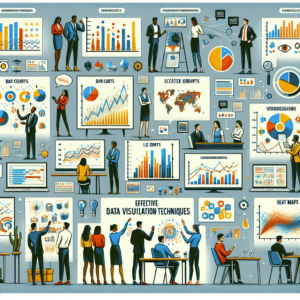Introduction
There is no denying that the job landscape undergoes significant changes in war times, and the high tech industry is no exception. During such tumultuous times, it can be difficult to find a job in this sector. However, adaptability and skill enhancement are key to success. A high tech job market in war times requires individuals to leverage e-learning to strengthen their profiles and stand out from the competition. Understanding the high tech job market in war times.
Many industries are impacted by war, including high tech. Companies may prioritize defense, cybersecurity, and remote communication projects. Therefore, tech professionals with these skills are in high demand. For job seekers to align their skills with the market’s current needs, it’s crucial to understand these shifts.
Enhancing skills through E-learning
With the advent of electronic technologies and resources, e-learning has become a cornerstone of modern education. Its importance is amplified in wartime, when traditional learning environments may be disrupted. The flexibility, accessibility, and wide variety of courses available through e-learning make it an ideal tool for enhancing skills and continuing education.
A high-tech worker’s key skills
During war times, certain skills become essential in the field of high technology. The threat of cyberattack is often increasing, so security expertise becomes increasingly important. As many companies move toward remote work, employees must also be proficient in remote collaboration tools and techniques. In these unpredictable times, crisis management skills and agile methodologies are also highly valued.
Choosing the Right E-Learning Courses
There are a lot of platforms that offer e-learning courses developed by top universities and industry experts. Check out Coursera, Udemy, and edX. You’re going to need high tech skills, so be sure to look for courses that offer certifications.
We collected some tips for choosing the right online courses for you.
Strengthening Your Online Presence
In the digital age, a strong online presence is vital. Platforms like LinkedIn allow you to showcase your skills, network with industry professionals, and learn about job opportunities. Regularly update your profile with new skills, courses, and achievements.
Application Strategies in High Tech During War
During wartime, the landscape of the high technology job market undergoes significant changes, with certain skills becoming more critical than ever. In such times, companies look for individuals who not only possess technical proficiency but also possess characteristics such as adaptability, innovative problem-solving, and specialized expertise relevant to the challenges posed by the war environment.
Strategies for Crafting a Strong High Tech Job Application During Wartime
During such times, consider these strategies to enhance your high tech career application:
Highlight Adaptability and Flexibility: Clearly state your ability to adapt to changes. Share examples of how you’ve adapted to new technologies, workflows, or challenges. Highlight projects that required rapid learning or adapting to new tools.
Showcase Problem-Solving Skills: Emphasize your experience in solving complex problems, especially with creative thinking. Include examples where you developed innovative solutions under pressure.
Demonstrate Specialized Expertise: Feature job-specific skills like cybersecurity or data analysis, especially relevant during wartime. Include any e-learning courses or certifications in these areas in your resume.
Provide Examples of Crisis Management: Share experiences of handling crises to appeal to employers during wartime. Mention any management experience in crisis situations to show your calm and effective approach.
Emphasize Remote Work Skills: Show your proficiency in remote work, especially when normal work environments are disrupted. Detail your familiarity with remote collaboration tools and share examples of successful remote projects.
Tailor Your Application: Research the company and the role you’re applying for. Understand how the war impacts the company and highlight how your skills meet these challenges.
Leverage Your Network: Use networking as a job hunting tool, especially during uncertain times. Reach out to your network for insights on companies and roles.
Stay Informed About the Sector: Keep updated on how the war affects the tech sector. Use these insights to tailor your applications effectively.
Focus on these strategies to create an application that shows your fit for the high tech sector and your ability to contribute effectively during wartime.

Case Studies: Success Stories
YouTube CEO Susan Wojcicki’s story doesn’t have anything to do with finding a job during wartime, but it’s a great example of embracing technology and learning continuously.
It was in the late 1990s that Susan Wojcicki started to be involve with Google, renting out her garage to Larry Page and Sergey Brin for Google’s first office. Later, she became Google’s first marketing manager. She had an interest in technology and a forward-thinking attitude that led to her success.
It’s always been her philosophy to keep learning and adapt to technological changes throughout her career. In 2006, she helped Google acquire YouTube, which proved her ability to recognize and invest in emerging technologies. YouTube has seen explosive growth under her leadership, becoming the world’s leading video-sharing platform, since she took over the role in 2014.
Whether it’s formal education or self-directed e-learning, Susan Wojcicki’s success illustrates the importance of embracing new technologies, adapting in a fast-moving industry, and lifelong learning. Adaptability and continuous learning are the keys to success in tech, as her story shows.
There are also success stories of companies like Toyota, IBM, and HP founded during war time, .
In bad times, there are many good opportunities to establish companies and join some, it’s hard to think about it during war, but it’s definitely worth trying.
Conclusion
For those who are willing to adapt and evolve, the high tech job market during war can be challenging, but opportunistic. In a rapidly changing technological landscape, job seekers can acquire and refine the skills they need by embracing e-learning. The time is one of resilience, innovation, and strategic learning. The journey might be arduous, but the rewards of securing a role in the high tech industry, especially under such demanding circumstances, are immense. In times of adversity, this journey isn’t just about finding a new job; it’s about growing, evolving, and contributing meaningfully. E-learning opens doors to opportunities and paves the way for a successful career in high technology, even under war conditions.











